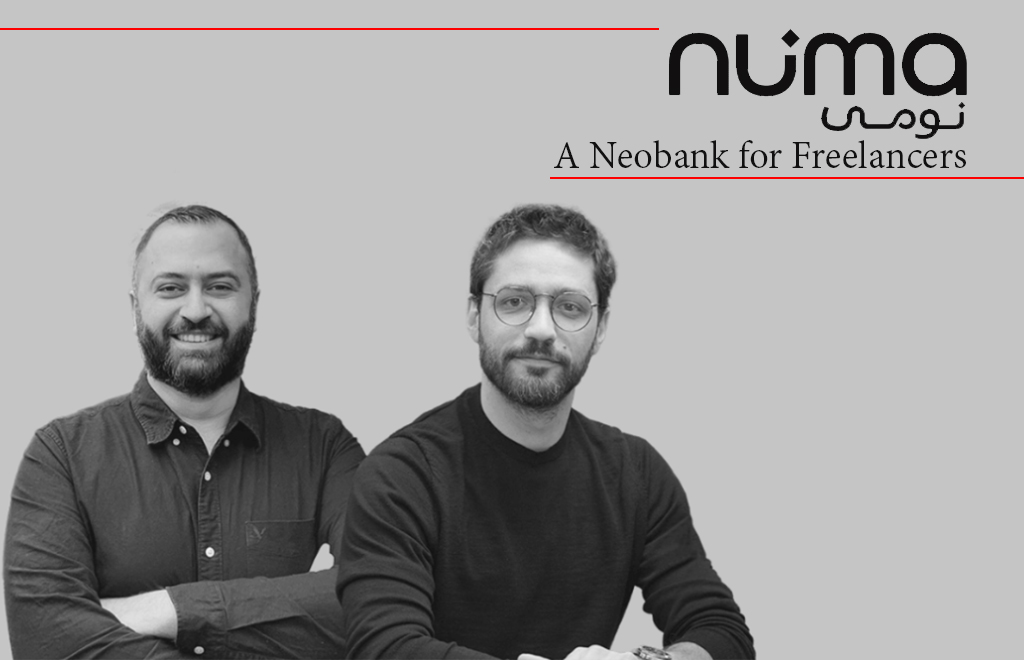
Numa: A Neobank for Freelancers
Any company in the UAE, which works so closely with freelancers knows the difficulties of paying the workers. Many freelancers do not have a source to access banking-related services, and in some cases, the workers involved in freelancing will only have access to maintain a personal transaction, which will not provide an option to maintain work-based transactions.
The owner of any micro business who works with a maximum number of two or three people, or any freelancer leaves out with no suitable solutions when it comes to related to the official banking and transactions. The small companies or micro businesses are too small to opt for opening new salary banking accounts, at the same time the transaction will be a little huge to completely rely on the personal banking accounts.
With a possible solution Numa, a neo-bank was founded earlier in the year 2023, with the hope to fulfill the break with the all-under-one platform services. Numa is Jordan based banking platform that was founded by Mr. Loay Malahmeh and the CTO Mr.Issam Najm. Numa, the neobank will get attached to the existing personal banking account, and modify the complete infrastructure to deliver the features to the users.
This is completely a digital banking account with a virtual International Bank Account Number or IBAN, and a credit card. The whole banking setup will be beneficial for all the freelancers to get paid by the companies and make other financial transactions through the bank account.
For the past few years trend of freelancing job sites have been started increasing unexpectedly not only in the region but globally. Most sites offer to work under a suitable position in various sectors. There are many trustable sites to offer a platform for freelancers to pitch and apply for a particular project, whereas some of them are widely recognized for offering global platforms.
Though it sounds like a smooth process for hiring independent workers until it comes to the financial part.
According to the ILO, International Labour Organization, the number of independent workers has crossed 40 million in the MENA region (Middle East and North Africa). Based on a detailed analytical report by NUMA says that there are 4 million freelancers who work digitally and have an average earning of $10,000, and approach a $4 billion market rate.
The founder Mr. Loay Malahmeh said, “Today as a freelancer, when you go to the bank, you’re faced with two inconvenient options – one is a consumer bank account, which is not enough, as it is just a card and an account and the other option is business banking, which is too complicated and requires a lot of paperwork.”
NUMA ensures to complete the gaps between the business owners, or a particular company and the consumers. The extensive level of services can be fulfilled without any extra paperwork and licences.
“As a freelancer, your needs are more related to a micro business, it’s not just about having a bank account or card, it’s more about access to finance and getting business tools for tax and admin,” Malahmeh further added.
According to Malahmeh, in current times financial banking services are structured in a way to fulfill the financial services at a traditional economic level, which impacts the freelancer’s banking access and credit lines, which includes many other transaction tools and medical insurance.
The financial solution included by Numa is not only limited to banking services and credit card access but includes other services like contract invoices, management of expenses, and help with tax return policies. The banking services also develop a credit score system that can merge a great fit in for a complex pattern of income of a freelancer. They may come with an extension of different lending products in the future, currently under process.
The partnered bank, Bank of al Etihad, in Jordan, and its banking facilities as a service division. The Financial Technology of Etihad will provide financial services.
The platform is recently launched after a private beta testing period of several months. The plan is to gather a customer range that includes software engineers, digital marketers, creative designers, and individual entrepreneurs in different fields spread across Jordan. The Pre-seed funding rounded has been completed by the investors including Oasis500, BLDR Venture, and Finto. The startup is currently looking for more seed funding to implement further expansion of plans in Saudi Arabia and the other parts of the GCC.
“The opportunity is massive in Saudi Arabia because the GCC already has a licence for freelancers. There are more than two million people in Saudi Arabia who have a freelancer licence,” said Malahmeh.
As Numa says that it is a neobank, which is basically a fintech company aligned with banks to provide its services, hence it doesn’t hold a verified banking licence. This may lead to face many difficulties while expanding the startup across the region.
“All of our banking services are provided by our banking partners. We have open banking regulation that was recently approved by the Central Bank and this enabled us to launch all of these services on top of the existing bank’s infrastructure,” says Malahmeh.
The services provided by Numa also include a complete KYC process, and issuing the Internation Bank Account number along with a virtual credit card, which comes with Numa’s one branding.
Moving the business outside of Jordan can be possible only after partner different banks in different countries. And the process will be difficult in every country without an open banking regulation.
“The challenging part is that each region has its own rules of open banking and even the open banking regulations in one country is different to another, so I can’t take the same infrastructure I’ve built in Jordan and take it to the GCC today. When it comes to acquiring new users in another country in the region, it is as if you’re opening an office in France, and then you want to go to Brazil for example.”
“It takes so much time to understand regulations and there’s no clear blueprint of how to do it from one country to another. There are no shortcuts in fintech, you have to follow the rules and regulations. So this is a major challenge in our region because it is fragmented.” He further added.
“In the GCC it’s about having the right partner, the right open banking technology, and having a bank for other services that include financing and credit,” says Malahmeh.
The one strategy that can change the whole expansion scenario would include and partnered with some open banking platforms like Tarabut Gateway and Lean Technologies which will let anyone access Numa’s services with an existing bank account, and the credit card would be issued through a partnership authority of Mastercard or Visa.
The founder of Numa, Malahmeh further explained, “We’ve deliberately made the app free because we want to study user behaviour, so today users can come and experience the app and the services which will later be available through a subscription model. The second revenue stream that we want to introduce later on is from access to finance so providing credit lines, which we will do with third parties.”
The services provided by Numa are currently free and as a part of certain monetization policies, a freemium model will get applicable.

 Previous Article
Previous Article